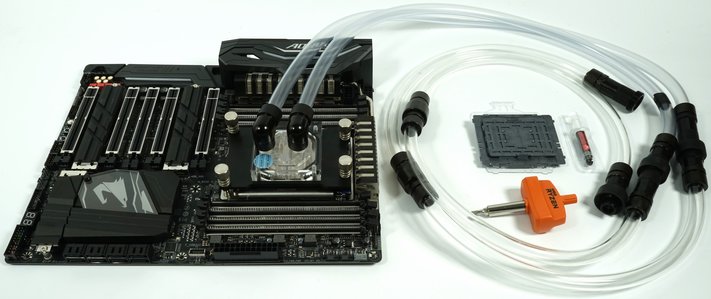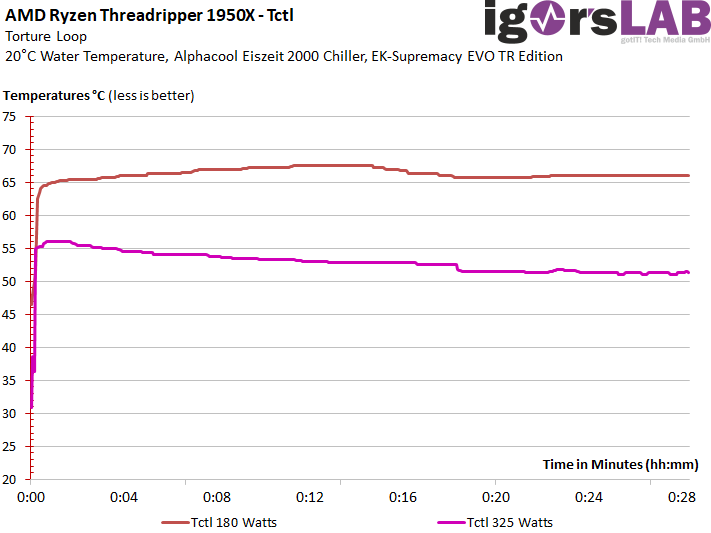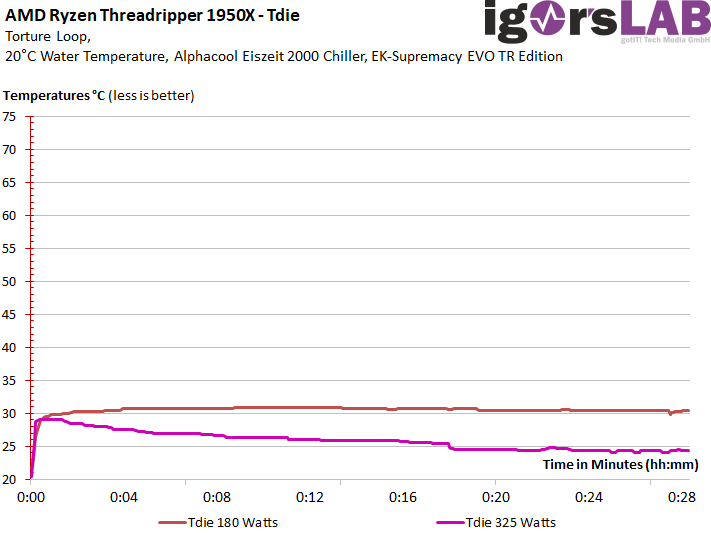When testing a new water block for AMD's Threadripper platform (we'll put the article online tomorrow) we came across a bug in AMD's firmware by chance, which of course we immediately got to the bottom of. Compared to the launch article and a comparable water block, the temperature values now measured were up to 25 Kelvin for Tctl (the compute cores) and even up to 35 Kelvin for Tdie (i.e. the Package) lower than at launch!
This alone would not even be dramatic, since the values when operating the CPU in the factory cycle and around 180 watts of package power are now roughly what we can expect with a good water block, a chiller and a soldered IHS. At the launch, AMD spoke of the mandatory offset of 20 Kelvin as an encore. That's why we were even happy at first that our values looked a little more realistic.

But at the latest with overclocking and a package power of 325 watts we were amply speechless. The higher the power consumption increased, the lower the reported temperatures were! At 180 watts, it was still approx. 67°C for Tctl, the value dropped to 51 °C at around 325 watts, which would be 16 Kelvin less. That this is of course absurd, one does not have to discuss further, especially since one gets these values issued even with short-term, small load peaks in the idle.

We see the same effect at Tdie, where the feedback of a good 24°C belongs to the realm of illusions. Critically, the Wattman tool also relies on this extremely low value and the motherboards also use this value as a basis for temperature-controlled fan control. This, in turn, then goes terribly wrong at the latest when overclocking.

Of course, we first searched for the cause and went on a search for traces. In order to be able to exclude our systems as a source of error, we have therefore extensively counter-tested.
New, clean Windows image with old and later new drivers? Misreporting. Switch between three (!) Motherboards from different manufacturers (Asus, Gigabyte, ASRock) and the most up-to-date BIOS? Again, nothing. Flashing back from the current BIOS 0503 to the old 0304 from the launch day on the Asus X399 ROG Zenith suddenly brought back the old temperature values, but also the known stability problems.
We therefore suspect the cause of the error is the Agesa Code 1003 Patch 4, which now returns the calculated temperature values completely incorrectly. What still looks reasonably plausible at the factory clock is then simply wrong with the OC. We also see a real threat to stability when power consumption increases, but return values fall and, for example, the return values fall. the fan curves based on these computational values are reduced far too much as a result.
A counter-test with a significantly weaker AiO and some OC led to significantly lower fan speeds if this PWM-controlled system is controlled by the motherboard. The result was a thermal GAU. You don't have to think about an air cooler anymore.
We have already informed AMD about these measurements, but are still waiting for an opinion or a new BIOS. At the latest then we will of course do a follow-up test and report again. Before hand, however, we recommend that the fans on boards with the current BIOS versions be controlled either manually or speed (also on the motherboard).































Kommentieren